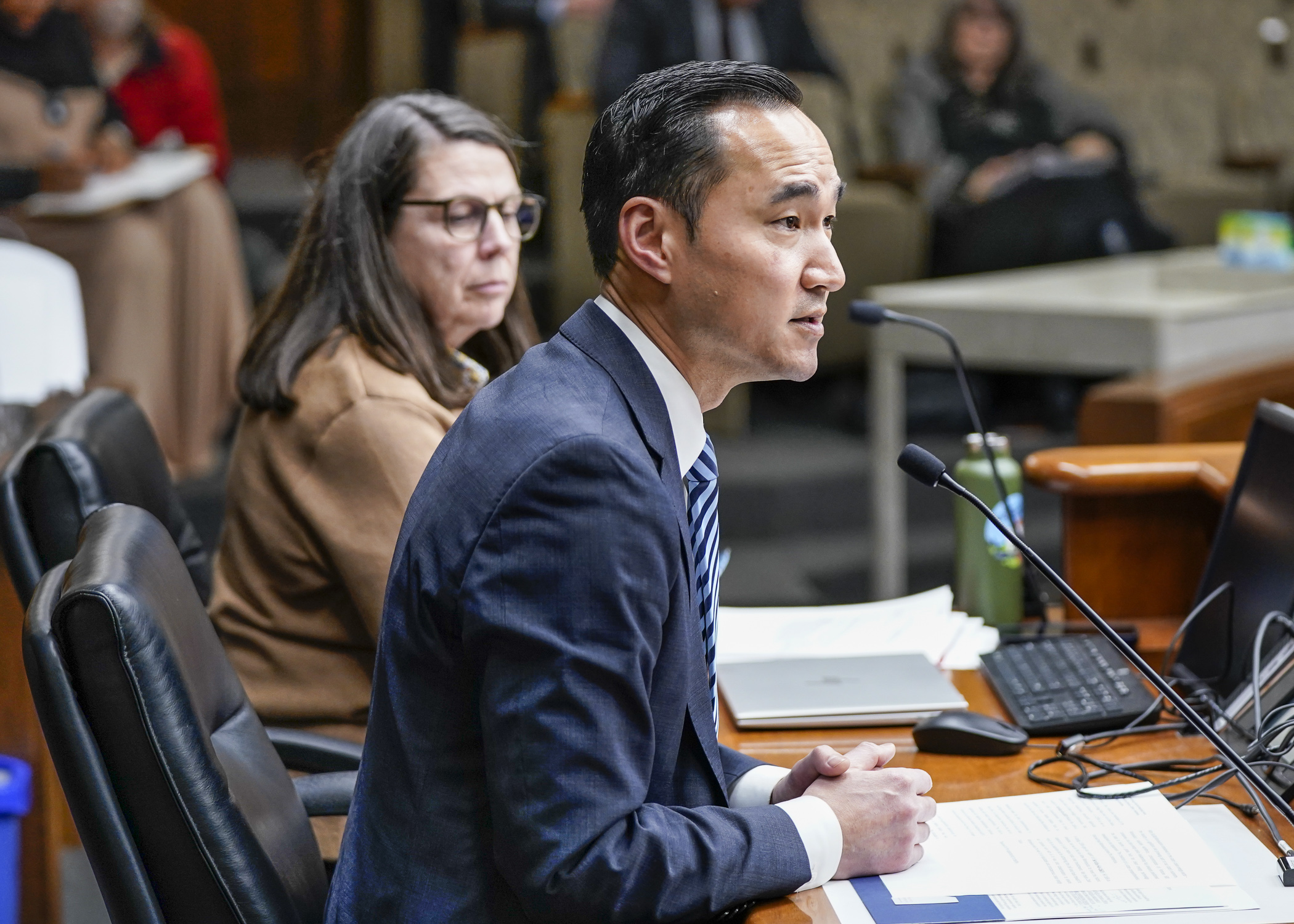Competitiveness fund could strike a match for renewable energy projects

When Gov. Tim Walz offered recommendations last week on budget allocations focused on energy and slowing climate change, he proposed that the biggest chunk of money should go toward matches.
That is, the kind of matches that pay for the state’s share of renewable energy projects. A lot of federal money could come the state’s way via the Infrastructure Investment and Jobs Act of 2021 and the Inflation Reduction Act of 2022 to increase the state’s use of renewable energy sources and reduce greenhouse gas emissions. But much of it requires some level of state buy-in.
That’s where the so-called “Competitiveness Fund” comes in.
Rep. Patty Acomb (DFL-Minnetonka) sponsors HF1656, which, as amended, would provide $156 million from the General Fund to match federal funds and help federal grants come to the state.
Acomb successfully offered an oral amendment that would make the funds potentially available during the current fiscal year. The fund would be operated by the Commerce Department.
On Wednesday, the House Climate and Energy Finance and Policy Committee referred the bill to the House Ways and Means Committee by a voice vote, with a handful of members dissenting.
The fund would be designed to make Minnesota a solid candidate for federal grants, many of which involve competing with other states. A few testifiers emphasized that time is of the essence, as other states are already applying and approving matching funds.
Rep. Marion O'Neill (R-Maple Lake) was unhappy the committee did not yet have a detailed fiscal note, and unsuccessfully moved to table the bill. The motion was defeated on a party-line vote.
But the bill does delineate the appropriation in more general terms:
- $140 million for matching federal funds;
- $13.75 million for grant development assistance;
- $1.5 million for information system development to support the program; and
- $750,000 for required reports and audits through 2035.
“This is a once-in-a-generation opportunity for Minnesotans,” said Gregg Mast, executive director of Clean Energy Economy Minnesota. “There are literally billions of federal dollars that will be distributed for such items as regional hydrogen hubs, upgrading the electrical grid, piloting emerging clean energy technologies, researching the extraction of rare earth elements vital to the clean energy transition, as well as training and upscaling the next generation of clean energy workers.”
“Minnesota is, frankly, a little bit behind,” said Chris Duffrin, president of the Center for Energy and Environment. “But this bill puts us back on track to be competitive with other states.”
Rep. Chris Swedzinski (R-Ghent) wondered how much legislative oversight would be part of the process.
“When we have dollars going out, we’re going to be giving them to organizations that will have the ability to go out and hire people themselves to write grants to spend state money,” he said. “That’s where bad things happen, such as fraud. We’ve seen it happen in a major way with feeding our children. And I’m concerned that we could see a repeat of that in feeding our energy grid.”
Acomb replied that the bill includes a number of required reports that must be filed to the Legislature on an annual basis.
Deputy Commerce Commissioner Michelle Gransee added that the federal Department of Energy has a very rigorous process for vetting grant applications, and only after its approval of a project would the state provide the match.
“It is going to be good for Minnesota, whether you agree with how the money was appropriated at the federal level or not,” Acomb said. “It doesn’t make sense for Minnesota to sit on the sideline.”
Related Articles
Search Session Daily
Advanced Search OptionsPriority Dailies
Speaker Emerita Melissa Hortman, husband killed in attack
By HPIS Staff House Speaker Emerita Melissa Hortman (DFL-Brooklyn Park) and her husband, Mark, were fatally shot in their home early Saturday morning.
Gov. Tim Walz announced the news dur...
House Speaker Emerita Melissa Hortman (DFL-Brooklyn Park) and her husband, Mark, were fatally shot in their home early Saturday morning.
Gov. Tim Walz announced the news dur...
Lawmakers deliver budget bills to governor's desk in one-day special session
By Mike Cook About that talk of needing all 21 hours left in a legislative day to complete a special session?
House members were more than up to the challenge Monday. Beginning at 10 a.m...
About that talk of needing all 21 hours left in a legislative day to complete a special session?
House members were more than up to the challenge Monday. Beginning at 10 a.m...